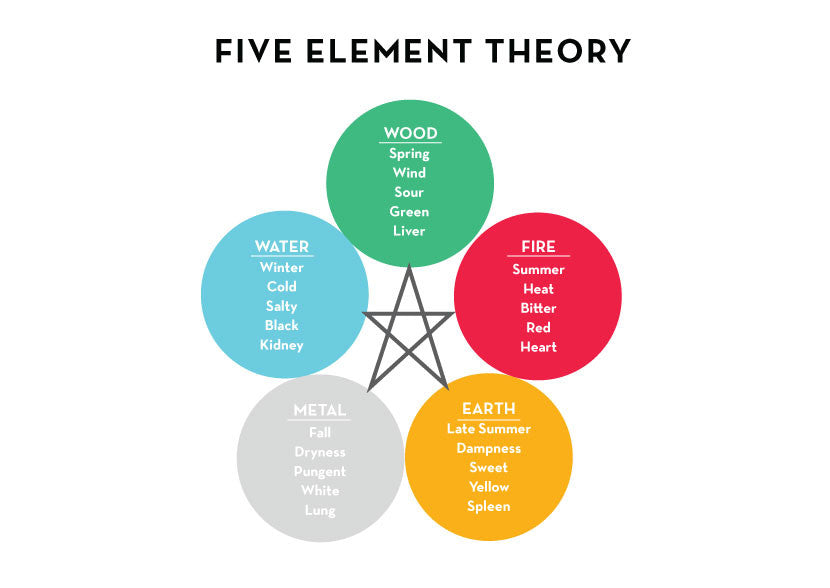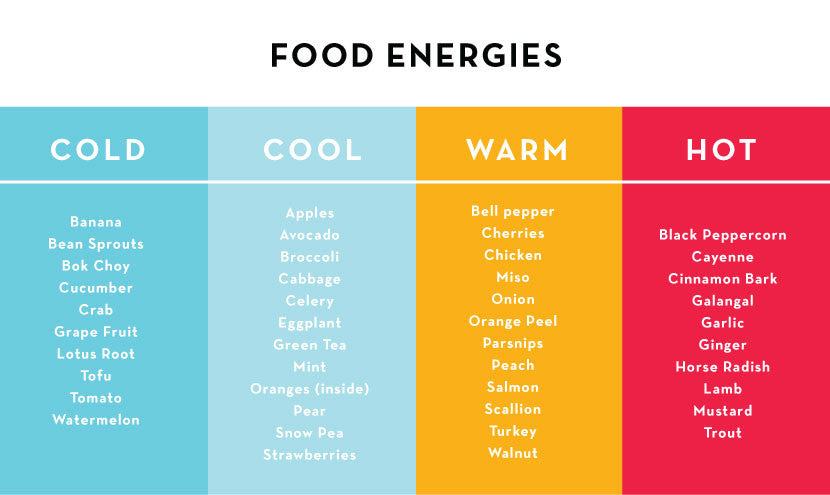Food is a part of everyday life, so much so that you may not give it a great deal of thought. Nowadays many of us don’t think twice about eating, we basically eat what is in front of us. Food picked up in delis or ordered in restaurants arrives on a plate, we quickly eat it and continue with our day. Even when we take time to prepare meals at home, it isn’t always easy to plan a menu that is healthy. This disconnect with food can affect our health in dramatic ways.
The overall goal of nutrition in the east and west is to maintain a strong, healthy body and while we do agree on things like eating a variety of food and avoiding too many unhealthy chemical additives, there are differences.
In the west our diets revolve around the four food groups: dairy, grains, meats, fruits and vegetables. Everyone should eat from these groups to furnish our bodies with essential nutrients, vitamins, minerals, amino acids, proteins, carbohydrates, calories and fat. Studies and thoughts are discussed as to more specific diets such as paleo, plant based, standard American, vegan and vegetarian as well as others, all of which differ in varying degrees to Chinese medicine theory.
In Chinese Dietary Therapy, it is all about eating to your constitution and individual needs and whether you are excessive or deficient in any specific area and matching the energetic properties of food accordingly.
The concept of Yin and Yang is central to Chinese medicine theory and describes how opposing forces can interconnect while being present in all things. Two dynamic energies that maintain balance and harmony throughout the entire universe and within each individual human body. Chinese medicine advises that an excess of Yin should be countered with more Yang, and vice versa.

This can be explained with the five element theory, it's categorizations and how it provides a framework to assist us in making food choices that will be most beneficial to a person at a given time. The elements of the five element theory are wood, fire, earth, metal and water. These elements support and restrain each other in continuous patterns and must be kept in balance.
These five elements correlate to every aspect of life including colors, sounds, emotions, seasons, direction, climate, sense organs, solid body organs, taste, smell and more.

Seasonally the five elements match wood with spring, fire with summer, earth with late summer, metal with autumn and water with winter.
Environmentally the pairings are wood with wind, fire with heat, earth with dampness, metal with dryness, and water with cold.
Taste is wood with sour, fire with bitter, earth with sweet, metal with pungent, and water with salty.
Color is wood with green, fire with red, earth with yellow, metal with white, and water with black.
Solid organs are wood with liver, fire with heart, earth with spleen, metal with lung, and water with kidney. It is important to remember that these organs are not the same as anatomical and physiological concepts, they refer to related systems and include spiritual and emotional aspects as well as physical entities.
WOOD ELEMENT = LIVER & GALLBLADDER
The liver houses the soul, controls tendons, stores blood and is responsible for keeping energy flowing. When energy is obstructed, it is likely due to the liver. Anger, frustration and depression relates to the liver. The gallbladder stores and excretes bile, protects the nervous system from overreacting and helps to normalize a person emotionally. Gallbladder weakness may manifest itself through indecision.
FIRE ELEMENT = HEART & SMALL INTESTINE
The heart houses the Shen (spirit), governs blood, has taste as it sensory function and joy as it’s related emotion. The small intestines absorb fluids and are responsible for transporting waste. The heart is also responsible for communication.
EARTH ELEMENT = SPLEEN & STOMACH
The spleen transforms and transports food into usable food essence, produces blood and controls muscles. It opens into the mouth and manifests on the lips. Red, moist and vibrant lips indicate a healthy spleen. It is also responsible for keeping blood in blood vessels. Thus, bruising easily is a sign of a weak spleen function. The related emotion is worry or excessive thinking.
METAL ELEMENT = LUNG & LARGE INTESTINE
The main functions of the lungs are breathing, regulating water metabolism and descending and dispersing Qi throughout the body. The lungs open out to the nose and control the skin, pores and hair on the skin. Sadness is a related emotion. The large intestines excrete wastes from the body and absorb water.
WATER ELEMENT = KIDNEYS & URINARY BLADDER
The kidneys store jing, depleted jing leads to accelerated aging. Kidneys are responsible for growth, development and reproduction. The kidneys produce marrow from the brain and spinal cord, control bones, open to the ears, and balance body fluid metabolism. The related emotion is fear.
Instead of matching foods to the four food groups as is done in the west, eastern diet aligns foods with the tastes, energies, movements and seasons. Based on your deficiencies you would add pungent, salty, sour, bitter or sweet foods. When considering the energies you would add cooling foods or warming foods, this is not to do with the actual temperature of the foods but describes their effects on the body. Eating to the season refers to the yin and yang concept of food where in the winter you would need foods that are warming and in the summer more cooling.

In addition to taste and energies Chinese medicine theory refers to foods as having a direction which helps to move Qi through the body, food can have an upward, downward, inward or outward characteristic.
In combining the east and west concepts of nutrition we have the flexibility of adapting to every individual’s needs and treating the whole person rather than just the symptoms. Not only is it a healing system but a disease prevention system as well which can help you achieve and maintain health, vitality and longevity.
















